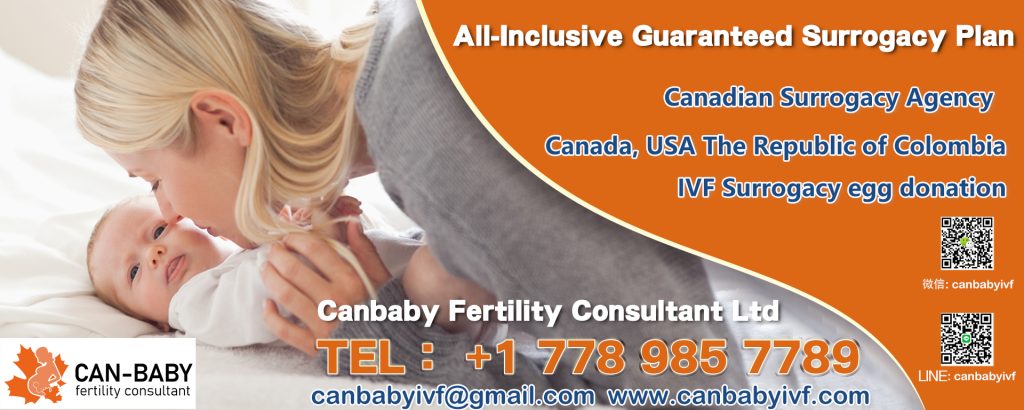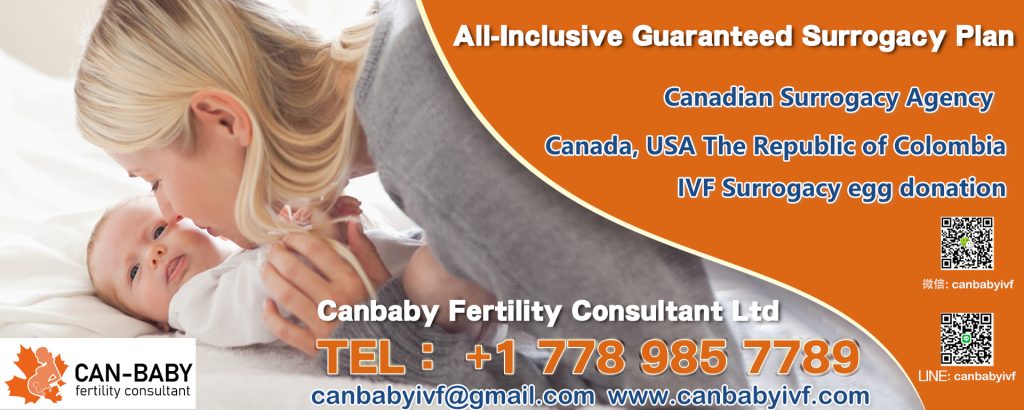Disclaimer: This article is an original work by Canbaby Fertility Consultant LTD, a Canadian surrogacy consulting company. Reproduction or redistribution without permission is strictly prohibited.

Your Complete 2025 Guide for Canadian Intended Parents
For many Canadian individuals and couples facing infertility or non-traditional family structures, surrogacy—especially abroad—offers a powerful opportunity to build a family. However, once the baby is born, questions of citizenship, parentage, and passport issuance can become complex and stressful.
If you’re a Canadian resident pursuing international surrogacy, understanding how your baby can acquire Canadian citizenship and travel home is crucial. This article provides a comprehensive overview of the citizenship and passport process for babies born via surrogacy, with a specific focus on compliance with Canadian surrogacy laws and immigration policy.
1. Is Surrogacy Legal in Canada?
Yes, altruistic surrogacy is legal in Canada. The Assisted Human Reproduction Act (AHRA) prohibits commercial surrogacy (paying a surrogate beyond reimbursement for expenses) but allows individuals to work with a surrogate if no profit is involved. Many Canadians, however, choose to pursue commercial surrogacy overseas due to shorter wait times, broader access, or medical/legal flexibility.
2. Does Canada Recognize Surrogacy Births Abroad?
Yes—but with specific requirements. Canada does not automatically recognize all foreign birth arrangements. In the case of a baby born through international surrogacy, citizenship is not granted by birth location (jus soli), but instead through parentage (jus sanguinis)—i.e., whether the child has a Canadian legal or biological parent.
The Government of Canada has two primary pathways for granting citizenship to babies born abroad via surrogacy:
A. Citizenship by Descent
If at least one biological parent is a Canadian citizen, and the parent was born in Canada or became a naturalized Canadian before the child’s birth, then the baby is eligible for Canadian citizenship. This is known as first-generation descent.
B. Citizenship by Grant (Immigration Sponsorship)
If neither biological parent is a Canadian citizen, or if the Canadian parent was also born abroad and holds citizenship by descent, then the child must be sponsored for permanent residence before applying for citizenship.
3. Biological Connection and DNA Testing Requirements
For babies born via surrogacy abroad, IRCC (Immigration, Refugees and Citizenship Canada) often requires proof of a biological link between the child and at least one Canadian parent.
When is DNA testing required?
- If the surrogate is listed as the legal mother on the birth certificate and no Canadian parent is named;
- If the child was born in a country with loose birth registration laws;
- If third-party donor gametes (egg or sperm) were used, and no Canadian parent is biologically related.
The DNA test must be:
- Court-admissible and conducted by an IRCC-approved laboratory;
- Accompanied by full chain-of-custody documentation.
If no biological connection exists, legal parentage must be proven through foreign court orders, adoption, or legal guardianship, depending on the laws of the birth country and Canadian provinces.
4. Applying for a Canadian Passport
Once citizenship is confirmed, parents may apply for a Canadian passport for their child. This is a critical step, especially if the child is born in a country where:
- The local government does not grant citizenship by birth;
- The child is stateless until Canadian documentation is provided;
- Local passports cannot be issued without naming the surrogate as mother.
Required documents typically include:
- Canadian proof of citizenship (citizenship certificate or card);
- Foreign birth certificate (translated if necessary);
- Custody or court documents, if applicable;
- Parental identification (Canadian passports, driver’s licenses, etc.);
- Passport photo of the infant (must meet strict requirements).
It’s essential to begin the application process as early as possible, especially in countries where bureaucracy is slow or where foreign-born children face immigration restrictions.
5. Countries Where Surrogacy May Complicate Citizenship
While many Canadians choose surrogacy in countries like the United States, Georgia, Colombia, and Mexico, it’s important to understand local birth registration rules and their impact on Canadian procedures.
| Country | Citizenship Issues | Canadian Consideration |
| USA | Grants citizenship by birth | Easier to obtain travel documents |
| Georgia | No citizenship by birth | Baby may be stateless until Canadian docs issued |
| Colombia | Complex registration; may require surrogate’s consent | Legal paperwork delays likely |
| Ukraine | Political conflict may delay processes | Safety and embassy service issues apply |
| India | Now bans foreign surrogacy | Not a viable option for Canadians |
6. What Happens If the Child Is Stateless?
A stateless child is one who is not recognized as a citizen by any country. This can happen if:
- The birth country does not recognize surrogacy;
- The surrogate is not willing or able to register the birth;
- Canada delays citizenship due to legal ambiguities or lack of documentation.
In such cases:
- Parents may seek temporary travel documents (like a Canadian Emergency Travel Document);
- The child may require additional legal intervention, such as a court order declaring parentage or guardianship.
This scenario highlights the importance of pre-birth legal planning, using local and Canadian legal professionals.
7. Legal Documentation You Should Prepare in Advance
To avoid delays and complications, prepare the following:
- Surrogacy contract (signed and notarized);
- Consent forms from the surrogate (for birth registration and parental rights);
- Medical records proving intended parents’ involvement;
- Embryo transfer documentation;
- DNA test pre-approval paperwork;
- Letters from the fertility clinic confirming procedures and identities.
Many Canadian immigration officers will request a complete timeline of the surrogacy process as part of the citizenship application. Keeping thorough and organized records is crucial.
8. Working with Lawyers and Agencies
To ensure a smooth citizenship and passport process, Canadian intended parents should work with both:
- A lawyer in the birth country—to manage the birth certificate, surrogate consent, and local legal issues;
- A Canadian fertility or immigration lawyer—to handle citizenship applications, passport filings, and ensure legal compliance under Canadian law.
These professionals will help translate documents, certify them, and navigate the communication with IRCC and local authorities.
9. Timeline: From Birth to Bringing Baby Home
Here’s an example timeline for a typical case:
| Step | Timeframe |
| Baby is born | Day 0 |
| Birth certificate issued | Days 2–10 |
| DNA sample collected and shipped | Days 5–15 |
| DNA results received | Days 15–25 |
| Citizenship certificate application submitted | Days 25–35 |
| Citizenship approved and certificate issued | Days 60–90 |
| Canadian passport applied and received | Days 90–120 |
| Family returns to Canada | Approx. Day 100–150 |
Delays can occur if documentation is incomplete, the country is politically unstable, or communication with the surrogate is interrupted.
10. Final Tips for Canadian Parents
✅ Start early: Don’t wait
until birth to prepare documents.
✅
Know the local laws: Not all countries are surrogacy-friendly.
✅
Keep communication open: With the surrogate, agency, and embassy.
✅
Stay updated on IRCC policies: Immigration and citizenship rules change.
✅
Plan financially: Legal and translation costs, travel delays, and DNA
testing fees can add thousands to your budget.
Conclusion
Becoming a parent through surrogacy is an exciting milestone—but bringing your baby home to Canada involves careful legal and immigration planning. Understanding how citizenship and passport applications work for babies born through surrogacy abroad is critical to ensuring a smooth, stress-free transition.
If you are considering surrogacy in Georgia, Colombia, Mexico, or the U.S., speak with a legal professional who understands both Canadian surrogacy law and international birth documentation. With the right support and preparation, your child’s first journey home will be a joyful and lawful one.
Keywords
- Canada surrogacy citizenship process
- Canadian passport for surrogate baby
- IRCC surrogacy immigration rules
- Babies born via surrogacy abroad
- Surrogacy birth certificate Canada
- Citizenship by descent surrogacy Canada
- Surrogacy in Georgia Colombia Mexico
- DNA testing for Canadian citizenship
- Surrogacy legal documentation
- Bringing baby home to Canada after surrogacy

